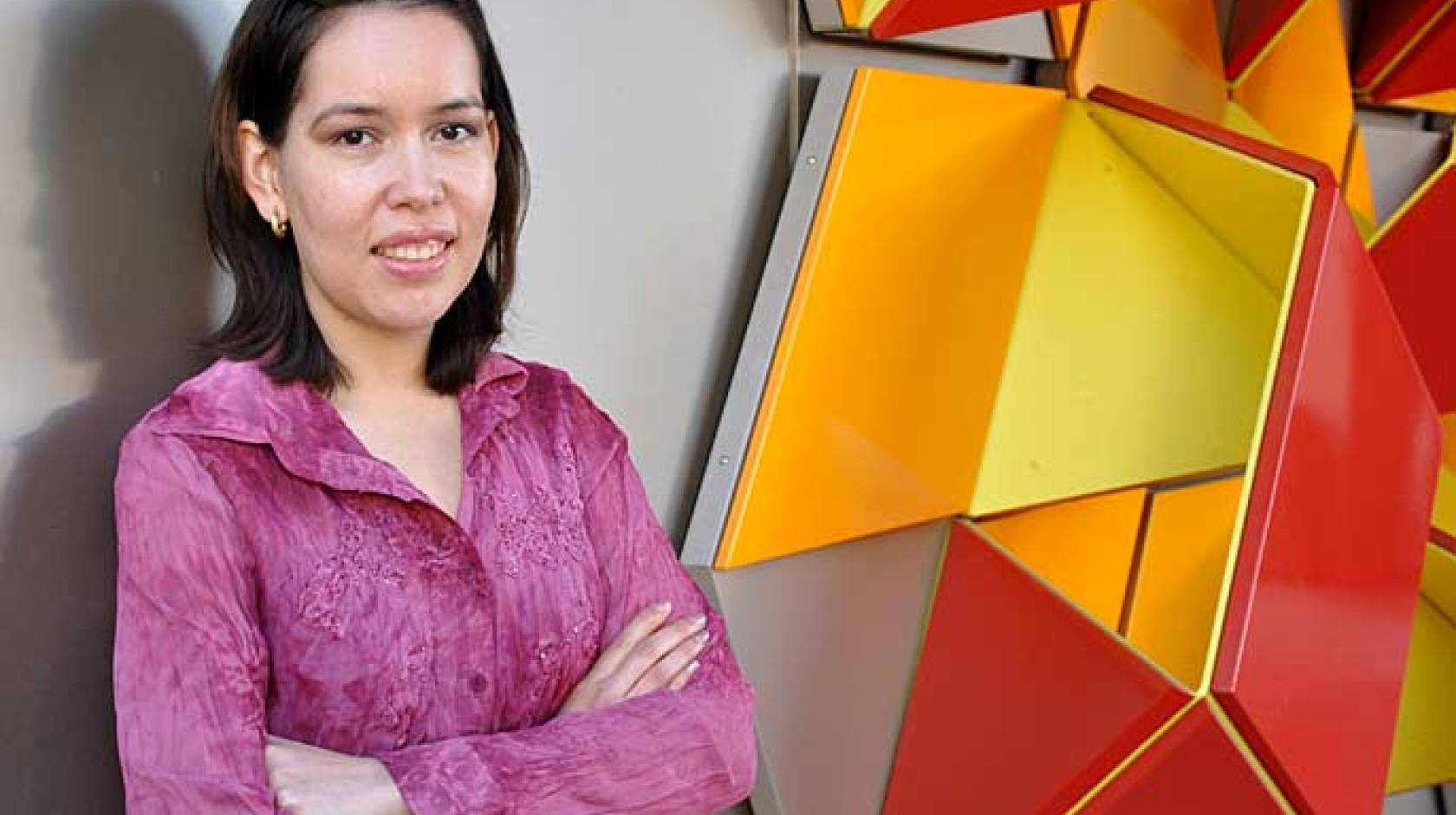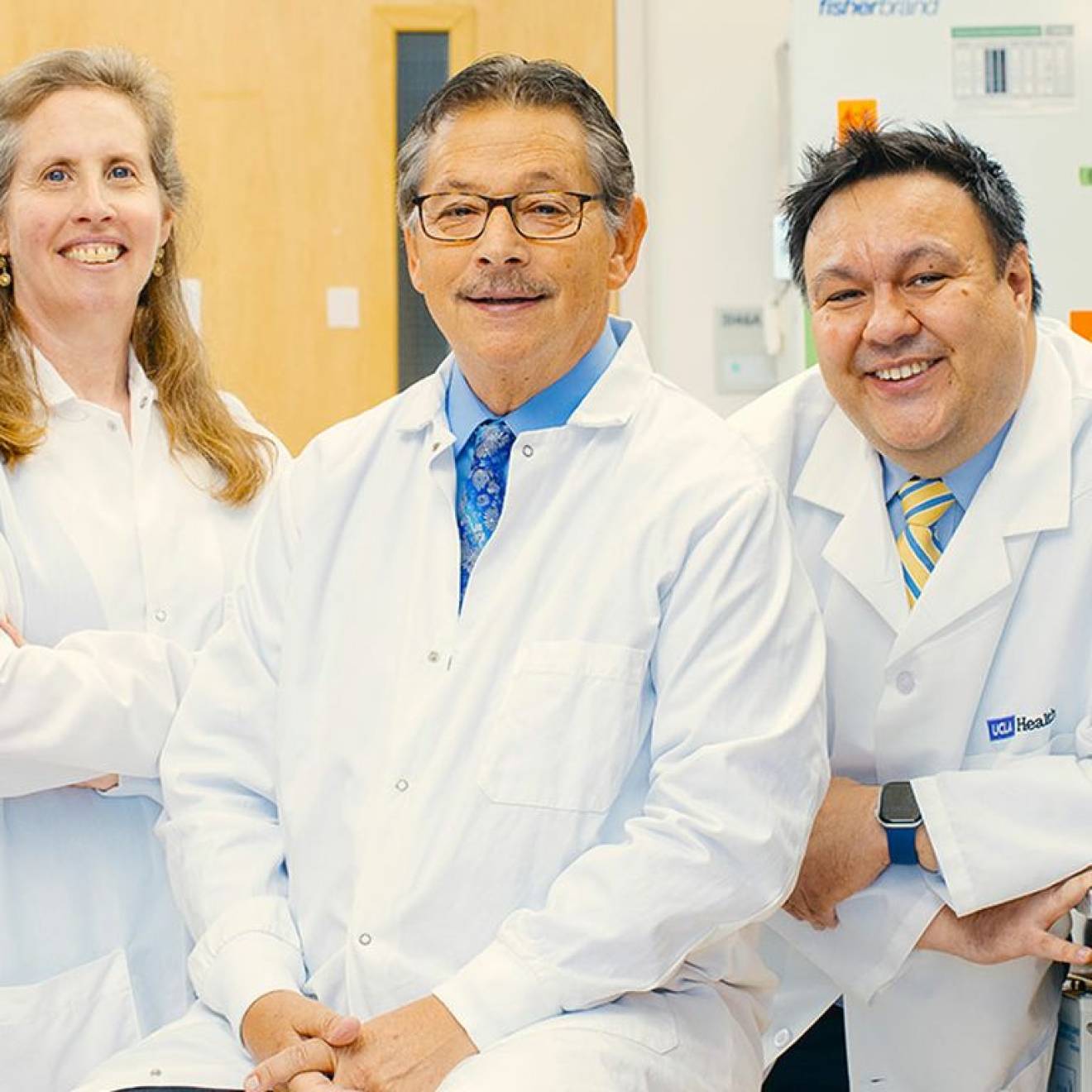Iqbal Pittalwala, UC Riverside

In 2009, when she was an undergraduate student at UCLA, Irma Ortiz attended a talk on that campus by Linda Walling, a professor of genetics at the University of California, Riverside. When Walling, a specialist in the areas of plant defense responses and plant-insect interactions, gave another talk at UCLA two years later, Ortiz finally found the courage to approach Walling and introduce herself.
“I knew, right then and there, that I wanted to do research in UC Riverside’s graduate program in plant biology,” said Ortiz, now a Ph.D. graduate student in Walling’s lab, where she also researches plant defense mechanisms.
Today, Ortiz and her lab-mates identify and deploy gene-based strategies for insect resistance in plants. Recently, the lab found that transgenic tomatoes that over-express the protein leucyl aminopeptidase A (LAP-A) are more resistant than regular tomatoes to insect feeding.
“We are working on understanding LAP-A’s activity on other tomato proteins that results in plant resistance to insects,” Ortiz said. “One thing I like about doing scientific research is that it makes every day different. I do different kinds of laboratory work, analyze new data, and write. I am also finishing up my courses.”
Family support
Ortiz grew up in Panorama City, Calif., and attended James Monroe High School in nearby North Hills. Quiet by nature, she is driven by a determination to succeed. Like many UCR students, she is the first in her family to graduate from college. Her parents, immigrants to the United States from Mexico, regularly attended meetings in her elementary and high school to support her education.
“They understood the importance of a college education,” Ortiz said. “They did not pressure me to have a specific career or get a post-secondary education. They accepted that I would be a science major at UCLA. All they told me was to do what made me happy.”
An early challenge for Ortiz was the unavailability of members in her family who could advise her on college applications. She turned, therefore, to her high school for support, meeting with limited success. She also solicited advice from university recruiters who visited Monroe High.
“Finally, I researched the requirements to qualify for the University of California campuses as well as the scholarships available to students underrepresented in the sciences,” she said. “This was a turning point in my life. I don’t think I would be in graduate school if it weren’t for all the mentors I had at UCLA. Now, I want to give back by providing career and research mentoring to underserved undergraduate students.”
Attending UCLA presented some challenges for her. She found it intimidating initially to be on a large campus in a hectic metropolis. Living at home with her parents, she commuted to school, working part-time to pay for her textbooks. Inevitably, at first her grades suffered, but then things turned around for her when she took advantage of the resources available at UCLA to underrepresented students like her.
Upon graduating with her bachelor’s degree, she took a year off to work further on her undergraduate research project.
“At UCLA I heard about UCR’s NSF CAMP Bridge to the Doctorate program,” she said. “I attended a Society for the Advancement of Chicanos and Native Americans conference in 2011, and found out from UCR Dean Joseph Childers that I could apply to a graduate program and the CAMP Bridge to the Doctorate program.”
She applied, got accepted, and joined UC Riverside in January 2012.
“Irma joined my laboratory with the highest recommendations from her UCLA research mentor, an impressive publication record and a passion for research in organism interactions and student mentoring,” Walling, Ortiz’s adviser said. “She is bold and has rapidly expanded her scientific toolbox to include writing computer code to purifying proteins from plants and E. coli.”
Scholars, scientists and citizens
According to Childers, the dean of the Graduate Division, UC Riverside graduate programs work because of their commitment to producing not only world-class scholars and scientists, but first-class citizens of the world.
“Students like Irma are an important part of UCR’s recipe for producing a diverse, nurturing, but also challenging intellectual environment in which our graduate students train to meet their life goals,” he said. “The point is not simply to attract top students — it is to ensure their success. When we have students like Irma, who take advantage of everything UCR graduate programs have to offer, that success is virtually guaranteed.”
Ortiz’s honors include a National Science Foundation Graduate Research Fellowship “honorable mention,” accorded to meritorious applicants. Because of a fellowship she received from the CAMP Bridge to the Doctorate program for her first two years and a Ford Foundation Fellowship for the next three years, Ortiz can focus on her graduate work without financial burden. She has found useful the workshops the program offers on teaching and mentoring students.
“I mentor an undergraduate student in the Chicano Link Peer Mentor Program once a week,” she said. “I attend meetings throughout the quarter by the UCR Chicano Student Programs on how to be a good mentor to first generation college students."
Drawn to agriculture
What drew Ortiz to agricultural research are the strategies scientists use to enhance plant success and resistance to pests and pathogens.
“These strategies will increase the world’s food supply,” she said. “I joined UCR’s graduate program in plant biology to explore these strategies. Let’s face it: In 2050, the world’s population will exceed 9 billion and we must produce 70 percent more food to feed this burgeoning population.”
Her family’s history, too, plays a big role in her wanting to continue doing agricultural research.
“My paternal grandfather worked in U.S. fields, such as those in Riverside, through the Bracero program, the guest worker program, in the 1950s,” she said. “He came to the U.S. for months at a time and then would go back to Calera, his hometown in Zacatecas, Mexico. He would return to the U.S. when that labor was needed again.”
Ortiz often keeps in mind for inspiration her family history and roots — when she is in the lab, when she grows tomatoes in the growth chambers and greenhouse, when she treats plant tissues with plant hormones or when she collects, freezes and grinds the tissues — as she works diligently to find a LAP-A protein interactor involved in plant defense signaling. This research would lead, eventually, to making tomatoes more resistant to caterpillar feeding — an important goal that could impact agricultural sustainability in California, the nation and the world.
“I see the difficulties some Mexican families experience when they have a bad season,” she said. “My grandparents worked on agriculture most of their lives. My parents depended heavily on that income. How then could I not work in agriculture?”

